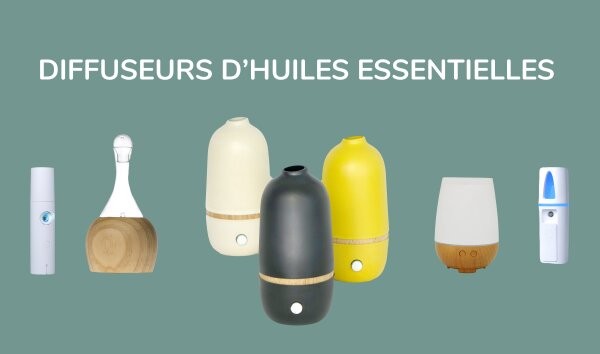Precautions when using essential oils

Essential oils are very powerful. They are to be used in moderation and with respect for the precautions of use relating to each of them.
Basic rules to follow
- Do not useessential oils in babies and children under 3 years of age.
- In general, we advise against the use ofessential oils for pregnant or lactating women, people with neurological and epileptic problems or with serious health problems. Unless medical advice, or taking advice from an aromatherapist.
- Injections (intravenous, intramuscular) ofessential oils are strictly prohibited.
- Do not apply essential oils to the eyes or eye areas to the mucous membranes: ears, nose, eyes, and do not swallow them unless advised medical advice.
- Essential oils should not be applied pure or sprayed inside the nose and ears. You can nevertheless massage the free-hand access areas (ear pavilion, nostril border) with a mixture of essential oil diluted to 5% in vegetable oil.
- Perform a test on the inner crease of the elbow and wait 24 hours to make sure there is no allergic skin reaction.
- Never use an essential oil without learning about its use. If you have any doubts or questions, you should always refer to a health professional.
- Some essential oils rich in phenols, terpenic adehydes (cinnamaldehyde, citral...) or terpenes can be irritating to the skin.
- Do not expose yourself to the sun for 4 hours after applying a citrus essence and certain essential oils that contain Furocoumarines.
- Respect the precautions of use in the technical sheet of each essential oil.
In the bath, mix the essential oil well beforehand with a neutral base (soap, shampoo...) because the essential oil does not mix with water.
Wash your hands after using an essential oil. - Keep essential oils out of reach of children and animals.
Internal use
- This lane is reserved only for adults and children over the age of 7.
- Before any use internally, it is necessary to read and respect the instructions and precautions of use contained in the technical sheet of each essential oil.
- Some essential oils should be used orally for short periods of time (essential phenol oils).
- Always seek advice from your doctor or pharmacist for this type of use.
- Do not use this route for extended use without medical advice.
- For any use of essential oils for purely therapeutic purposes, consult a doctor.
Atmospheric diffusion or inhalation
- Phenol-rich essential oils can be irritating to the airways and are not suitable for atmospheric diffusion or inhalation.
- It is possible to use them in small quantities (0.1 to 0.5%) in blends with other less aggressive essential oils (citrus, real lavender...).
- Do not spreadessential oils rich in ketones, especially in the presence of children.
- The spread and inhalation of essential oils is not recommended in people with asthma (especially during a crisis), and caution is required in young children and the elderly.
- It is important never to practice streaming essential oils in a closed room without aeration. Prolonged diffusion can saturate the air with aromatic molecules and may cause irritation of the respiratory mucous membranes.
- Respect the precautions of use in the technical sheet of each essential oil.
Precautions should be taken into account as part of a skin application
- Some essential oilsin phenols, terpenic adehydes (cinnamaldehyde, citral...) or terpene can be irritating to the skin. They must be used diluted.
- Others are photo sensitizing and it is not recommended to expose yourself to the sun at least for 4 hours after application.
- Some essential oils can be allergenic: always do a pre-test in the bend of the elbow.
- Respect the precautions of use contained in the technical sheet of each essential oil.
- Mix the essential oil with vegetable oil.
These properties, indications and modes of use brought to your attention by this focus are derived from scientific books or reference websites in aromatherapy that have been selected by our team.
They are found on a regular basis and many confirmed by observations in scientific settings. This information is given for informational purposes, it cannot constitute medical information or engage our responsibility.
For any use of essential oils for purely therapeutic purposes, consult a doctor.





Comments
Leave your comment